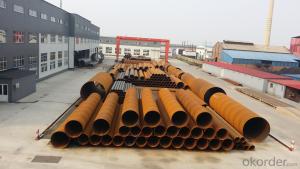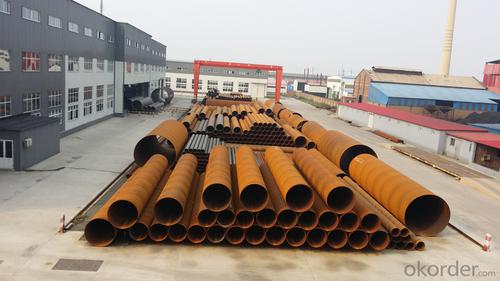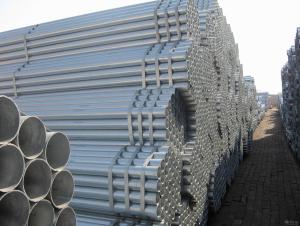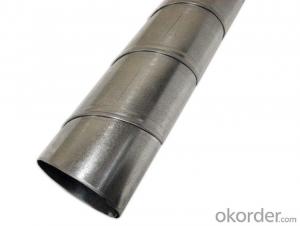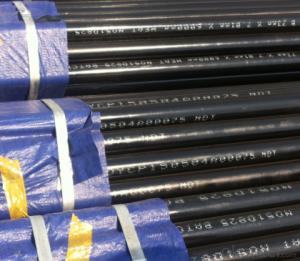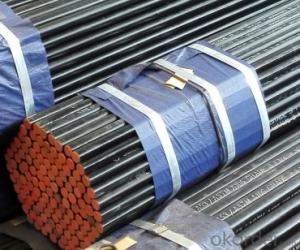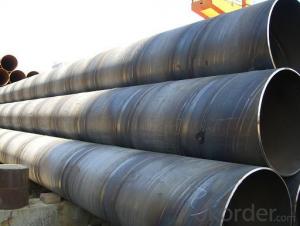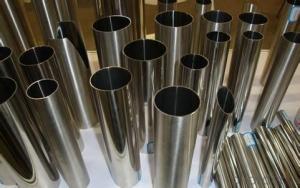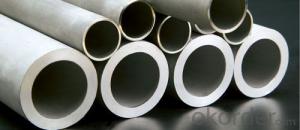SPIRAL CARBON STEEL PIPE ASTM API 5L PSL1
- Loading Port:
- China Main Port
- Payment Terms:
- TT OR LC
- Min Order Qty:
- -
- Supply Capability:
- -
OKorder Service Pledge
OKorder Financial Service
You Might Also Like
Packaging & Delivery
Packaging Detail: | standard export packing or as customer's requirement |
Delivery Detail: | within 10 - 30 days |
Specifications
Spiral Welded Steel Pipes and Tubes
1.Material:Q195-Q235
2.Length:1-12m
3.WT:1.0-14mm
4.O.D.:20-273mm
Spiral Welded Steel Pipes and Tubes
Product Description:
1.Material : Q235,Q345,L245,L290,L360,L415,L450,L485,GrB,X42,46,X52,X56,X60,X65,X70,X80,X100
2,Standard: SY/T5037-2000,GB/T9711-2011,API Spec 5L PSL1/PSL2,ASTM A252\A53,ISO3183,DIN17172,EN10217,JIS G3457,AWWA C200,ASTM A139,ASTM A671,ASTM A672
3.Wall thickness: 3.0mm-30mm
4.Outer diameter: φ168mm-3020mm
5,Length: 5m-12m or as your requirement
6,Corrosion protection standard: DIN30670,DIN30671, AWWAC210, AWWA C203, SY/T0413-2002,SY/T0414-2002
7,Application: Oil, gas, natural gas, water pipe, thermal electricity pipe, steel structure engineering, etc
Q195-q345 Material Steel Pipe's Materials
Elements | Chemical Compsition% | Mechanical Property | ||||||
| C% | Mn% | S% | P% | Si% | Yield Point (Mpa) | Tensile Strength(Mpa) | Elongation |
Q195 | 0.06-0.12 | 0.25-0.50 | <0.050 | <0.045 | <0.030 | >195 | 315-430 | 32-33 |
Q215 | 0.09-0.15 | 0.25-0.55 | <0.05 | <0.045 | <0.030 | >215 | 335-450 | 26-31 |
Q235 | 0.12-0.20 | 0.30-0.70 | <0.045 | <0.045 | <0.030 | >235 | 375-500 | 24-26 |
Q345 | <0.20 | 1.0-1.6 | <0.040 | <0.040 | <0.55 | >345 | 470-630 | 21-22 |
- Q: What is the difference between carbon steel and stainless steel pipes?
- The main difference between carbon steel and stainless steel pipes lies in their composition and rust resistance properties. Carbon steel pipes are primarily made of iron and carbon, making them less resistant to corrosion and prone to rusting. On the other hand, stainless steel pipes contain chromium, which gives them excellent rust resistance and durability. This makes stainless steel pipes ideal for use in environments where corrosion is a concern, such as in plumbing systems and industrial applications.
- Q: What is the difference between steel pipes and plastic pipes?
- The main difference between steel pipes and plastic pipes lies in their material composition. Steel pipes are made from a durable and strong metal alloy, while plastic pipes are composed of various types of plastic polymers. This difference in materials leads to variations in their properties and usage. Steel pipes are known for their high strength, resistance to extreme temperatures and pressures, and longevity, making them suitable for applications requiring robustness, such as in industrial settings or underground pipelines. On the other hand, plastic pipes are lightweight, flexible, and corrosion-resistant, making them ideal for plumbing, irrigation, and other non-industrial applications. Additionally, plastic pipes are easier to install and handle due to their lighter weight and flexibility compared to steel pipes.
- Q: Stainless steel tube, also known as why tube?
- Production methods can be divided into two categories: seamless pipe and welded pipeSeamless steel pipe can be divided into hot-rolled pipe, cold rolled tube, cold drawn tube and extruded tubeWelded pipe is divided into straight welded pipe and spiral welded pipe and so on
- Q: What materials are used in scaffolding pipes?
- The bamboo scaffold board made of bamboo or bamboo.
- Q: Can steel pipes be used for electrical conduits?
- No, steel pipes are not typically used for electrical conduits as they are conductive and can pose a safety risk. Electrical conduits are usually made of non-conductive materials such as PVC or metal with insulating coatings.
- Q: What is the importance of corrosion resistance in steel pipes?
- Corrosion resistance in steel pipes is crucial as it helps prevent the deterioration of the pipes due to chemical reactions with substances in their surroundings. This resistance ensures the longevity and durability of the pipes, minimizing the risk of leaks, clogs, and structural failures. Additionally, it helps maintain the quality and safety of the transported fluids or gases, preventing contamination or degradation. Overall, corrosion resistance in steel pipes is essential for maintaining efficient and reliable infrastructure systems in various industries such as oil and gas, water supply, and construction.
- Q: How are steel pipes protected against external damage?
- Steel pipes are protected against external damage through various methods such as coatings, wraps, and cathodic protection. These protective measures help prevent corrosion, abrasion, and other forms of external damage, ensuring the durability and longevity of the pipes.
- Q: How are steel pipes classified based on their end connections?
- Steel pipes can be classified based on their end connections into three main categories: threaded, socket-weld, and butt-weld.
- Q: Can steel pipes be used for conveying oil?
- Steel pipes are suitable for the transportation of oil. In the oil and gas industry, steel pipes are widely utilized for the conveyance of oil due to their robustness, longevity, and resistance to corrosion. The exceptional strength of steel pipes enables them to endure the demanding conditions of high pressure and temperature that often accompany oil transportation. Furthermore, steel pipes are less susceptible to leakage and damage in comparison to alternative materials, thus making them a dependable choice for the efficient transfer of oil over extensive distances. Moreover, the sleek interior surface of steel pipes aids in reducing friction and improving the oil flow. Overall, steel pipes are the preferred option for oil transportation owing to their superior mechanical properties and enduring performance.
- Q: Is there any difference between HFW steel pipe and ERW steel pipe?
- High frequency welding uses the skin effect to concentrate the energy of the high frequency current on the surface of the workpiece, and uses the proximity effect to control the position and range of the high frequency current flow path. The speed of the current is very fast, it can in a short period of time will be adjacent to the edge of the steel plate heating, melting, and through the extrusion docking, each has its own advantages, but also each has its own shortcomings. Generally according to specific circumstances, specific analysis of specific choices.
Send your message to us
SPIRAL CARBON STEEL PIPE ASTM API 5L PSL1
- Loading Port:
- China Main Port
- Payment Terms:
- TT OR LC
- Min Order Qty:
- -
- Supply Capability:
- -
OKorder Service Pledge
OKorder Financial Service
Similar products
Hot products
Hot Searches
Related keywords
